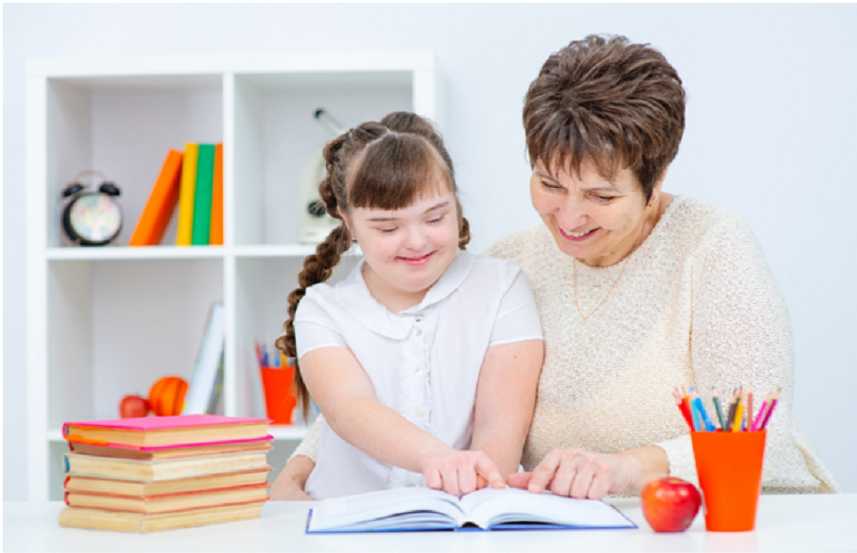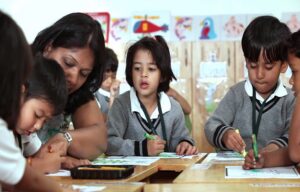Why More Than 50% Of India’s Special Kids Never Attend A School?
4 min read
According to a new UN report , 75% of children with special needs in India do not attend any educational institute in their lifetime.Even with the existence of a superficially inclusive policy on education with requirements to make the Indian education system more inclusive, the problem is still prevailing.
Though, there were numerous efforts made to assimilate special needs children into the mainstream school setting. Under India’s Disability Act (1995), kids with special needs have the right to receive education up to the age of 18. Some of the other important rights embrace necessities such as transportation, scholarships, free uniforms, books, and teaching materials.
The Supreme Court of India has directed the Central Government to inform the norms and standards of pupil-teacher ratio for special schools in India. According to the petitioners , there is a requirement to appoint around 73,888 special education teachers on regular basis to teach 3,69,443 CwSN (children with special needs) in the State of Uttar Pradesh and a similarly large number in the State of Punjab to fulfil the required pupil-teacher ratio i.e., 5:1.
What the Right of Children to Free and Compulsory Education Act, 2009 Is Saying?
“The Central Government in the exercise of the enabling power in Section 20, by now, ought to have provided suitable norms and standards for a general school admitting CwSN for providing inclusive, free, and compulsory education in a neighbourhood school, and separately for the special school which also is covered within the expansive definition of schools in Section 2(n) of the 2009 Act.”
Nevertheless, the norms and standards are only to define the minimum benchmark and are open to the State Government.
Additionally, the Rights of Persons with Disability Act, 2016 stated –
“For giving effect to this mandate, it is essential for the concerned authority and more particularly for the schools imparting education to CwSN, to ensure that a just pupil-teacher ratio is maintained without exception, including as specified under the law made by the Parliament or the scheme enunciated by the executive in that regard.”
What Are the Directions issued by the Supreme Court?
Below are some of the important directions issued by the supreme court of India –
- The Central Government must immediately notify the norms and standard sofpupil-teacher ratio for special schools in India.They also need to inform the separate norms for special education teachers who alone can convey education and training to CwSN in the general schools. Till then, as a stopgap arrangement adopt the recommendations made by the State Commissioner, NCT of Delhi.
- To create equal permanent posts by the experienced authority for the rehabilitation professionals/special ed teachers who can cater to the needs of CwSN.
- To recruit appointment procedures to fillin vacancies for rehabilitation professionals/Special Ed teachers on regular basis. The same shall be finished within six months from the date of this order or before the start of the academic year 2022-2023, whichever is earlier.
- The training schools/institutions must take essential steps to augment the number to overcome the shortage of rehabilitation professionals/special ed teachers.
- The amenities of specially trained teachers can be availed as roving teachers as per the SSS within the school block (cluster schools) to optimize the resource persons and as a stopgap arrangement, until a sufficient number of special education teachers become available for general schools as well as special schools.
- Additionally, the other educators and staff in the general schools need to be given compulsory training and sensitized to handle the special needs children in the general schools.
Laws On Education in India
Unfortunately, the laws on education in India have overlooked to focus on equal awareness when it comes to inclusive learning for special kids –
- Till now, there are no legal provisions that demand the preparation of either the children or the parents for an inclusive education situation. Nevertheless, various states such as Andhra Pradesh and Uttar Pradesh have directed exclusive built-up bridge courses for children with special needs, other states don’t have similar provisions.
- The laws do not place a compulsion on selected establishments to lend support to and counsel parents of children with special needs.
- A study by Das, Kuyini and Desai (2013) revealed that nearly 70% of the general school teachers had neither received training in special education nor had any experience teaching learners with special needs.
- Although the Rights of Persons with Disabilities Act, 2016 (RPWD Act) states that educational institutes should provide equal education to all, it does not evidently specify norms and standards on ‘rational accommodation’, ‘individualised support’ and ‘full inclusion’.
India’s educational policies regarding special needs children remain pretty indistinct. In a way, the Ministry of Social Justice and Empowerment runs separate schools for special needs children while the Ministry of Human Resource Development (MHRD) encourages that SEN children should be included more in regular classrooms and schools.
Recommendations
So, till now we have understood the fact that Indian educational policies concerning special needs children remain pretty unclear. So, what can be done?
The term ‘inclusive education’ needs to be clearly defined under the RTE (Right to Education) Act. The Act needs to be amended. It has to update the norms and standards to become more inclusive. The methods of assessment, teaching approaches, training, appropriate curriculum, etc., should have to be drafted. Furthermore, a directing intervention should also have to be set up to screen the implementation of the law on inclusive education.
Conclusion
Though there are numerous governmental initiatives on tumbling the stigma and making an inclusive atmosphere for children with special needs, Special Education courses help to identify the special educational needs. India still has a long way to go when it comes to thesocial acceptance of special needs children.







